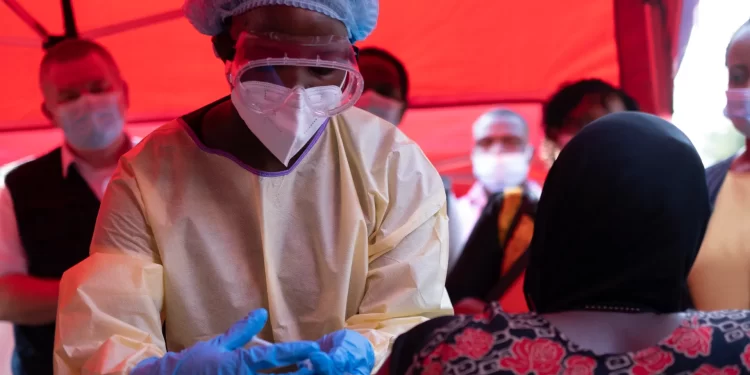Uganda is facing yet another outbreak of the deadly Sudan strain of the Ebola virus, reigniting fears among health officials, communities, and the tourism sector.
But beyond the medical emergency, the country is grappling with a different crisis—poor communication, deep-seated misinformation, and public hesitancy towards a newly introduced vaccine trial.
A History of Deadly Outbreaks
The latest outbreak, announced on January 30, 2025, comes just two years after the country battled its last Sudan Ebola epidemic in 2022.
That outbreak lasted four months, claimed 55 lives, and left lasting scars on survivors like Edward Kayiwa, a truck driver who was infected but fortunate to recover.
“I knew I was infected, but the fear was overwhelming,” Kayiwa recalls. “There were so many rumors that people were being injected with something that killed them instantly.”
It took him two days to realize that people were actually recovering before he finally called an ambulance himself.
Like in 2022, misinformation and fear continue to shape the public’s response to the latest outbreak.
A Silent Government, A Confused Public
Health officials confirmed that the first known case in 2025 was a 32-year-old male nurse from Mulago National Referral Hospital.
Before his death, he sought treatment at multiple health facilities in Kampala and eastern Uganda.
But since the government’s initial announcement, there has been little public information on the situation.
At a recent press event to launch a vaccine trial, Dr. Daniel Kyabayinze, the director of public health at the Ministry of Health, refused to provide any status updates on the outbreak.
“Uganda announcing the outbreak was critical and important, and I think we did the right thing,” he told Al Jazeera. But he also stressed that authorities “don’t want to disrupt travel, trade, and tourism.”
Health Minister Jane Ruth Aceng later told journalists that updates would only be given fortnightly instead of daily.
“Don’t ask us for case numbers every day—that is not important,” she said. “What is important is that you go to the communities, tell them they need to protect themselves, and ensure they pass on information.”
However, with little official communication, many Ugandans are left confused, fueling speculation and fear.
Tourism Sector Pushes Back
The lack of a coordinated public health strategy has also sparked frustration within the tourism industry.
Amos Wekesa, a prominent tourism businessman, criticized the government’s communication, saying the announcement triggered international travel advisories against Uganda.
“The moment news of an epidemic outbreak goes public, the next day, tour companies start receiving emails for cancellations and refund requests,” said Muhereza Kyamutetera, CEO of the Uganda Tourism Association.
Junior Minister for Tourism, Martin Mugara, admitted that he was “shocked” by the way the outbreak was announced, warning that such messaging could have long-term consequences for Uganda’s global reputation.
Vaccine Hesitancy Slows Response
In an effort to contain the virus, Uganda has introduced a trial vaccine for the Sudan strain. However, public reception has been lukewarm.
Despite the first Ebola fatality having had direct contact with healthcare workers and patients at Mulago Hospital, only one person agreed to take the vaccine during its launch. One other individual initially agreed but later backed out.
Dr. Bruce Kirenga, the lead researcher overseeing the trial, acknowledges that vaccine hesitancy is a significant challenge.
Read Also: Gov’t meets transport unions over fare increase
“My job is to remove this hesitancy. I did it for COVID, and I will do it now,” he said. “What causes hesitancy is a lack of information. We are going to provide people with the information they need.”
Filling the Information Gap
Public health experts argue that Uganda’s response to the outbreak needs to go beyond medical interventions.
“There is an information gap,” said Prof. Freddie Ssengooba from Makerere University. “We are all anxious to know what is happening.”
For survivors like Kayiwa, the message is simple: people need to take Ebola seriously.
“In the first room where I was admitted in 2022, all the patients died,” he recalls. “Ebola is no joke.”
As Uganda battles yet another outbreak, how the government communicates and engages with the public may be just as critical as the medical response itself.
SOURCE: BBCNEWS

























